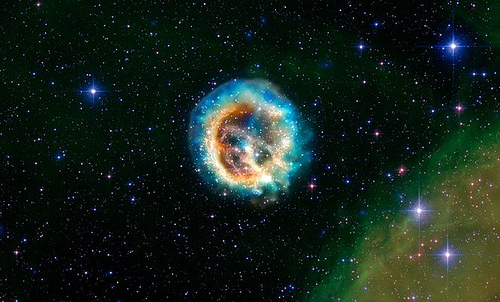FWP:
The idea that the heavens have a role to play in our lives is as old as astrology; evil stars or dangerous planetary conjunctions are poetically thought to threaten all sorts of dire happenings. In that astrological sense, evil stars and planets may 'send down' troubles upon us. Thus disasters are commonly imagined in the ghazal world as descending from the sky. See for example {14,8}, which seems to make the stars observers of some kind (though it's not clear whether they exercise any control) as the streams of disasters come pouring down. (And of course, blaming the sky, and the stars, and fate, is more theologically acceptable than blaming God.)
The lover certainly seems to be calling the beloved a balaa-e aasmaanii , literally a disaster that is 'sky-related'. This might mean a disaster that descends from the sky; but it could also mean a disaster that pertains to the sky because it dwells or remains there; think for example of {27,8}, in which the sight of the sky reminds the lover of the infinitely powerful, and infinitely remote, beloved. And comparing the stars invidiously to the beloved suggests that her rank, grandeur, radiance, cold glitter, inaccessibility, etc. far surpass theirs.
It's also a bit chilling to see how easily the lover dismisses
the mere 'cutting-off of lives' that stars generally do. How incomparably
much more deadly and cruel and tyrannical that beloved must be, who can be
described only as 'more' or 'other' (or as 'something else'). Once again Ghalib harnesses
the power of implication,
and forces our own imagination to do much of the poetic work of the verse.

Nazm:
That is, from the wandering of the stars time is marked off [qa:t((a]; and from the time being marked off, lifetimes keep being marked off. But this effect is very weak. Here, the celestial disaster that I've become involved with-- she/he/it is forceful fate itself. (173)
== Nazm page 173